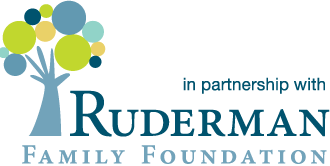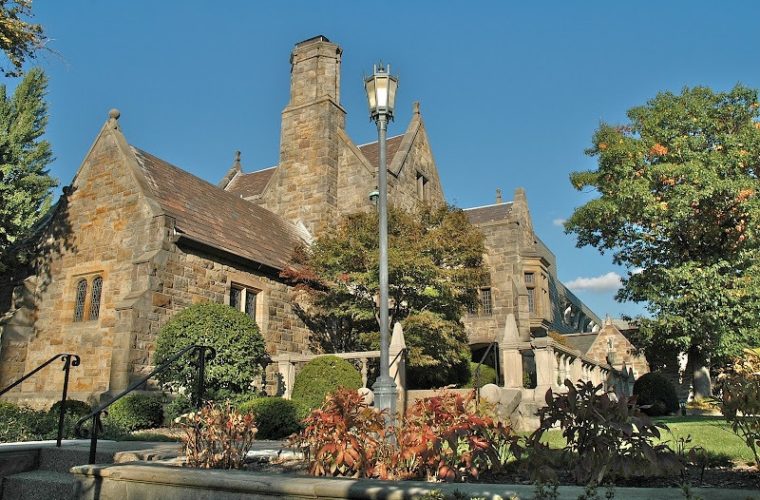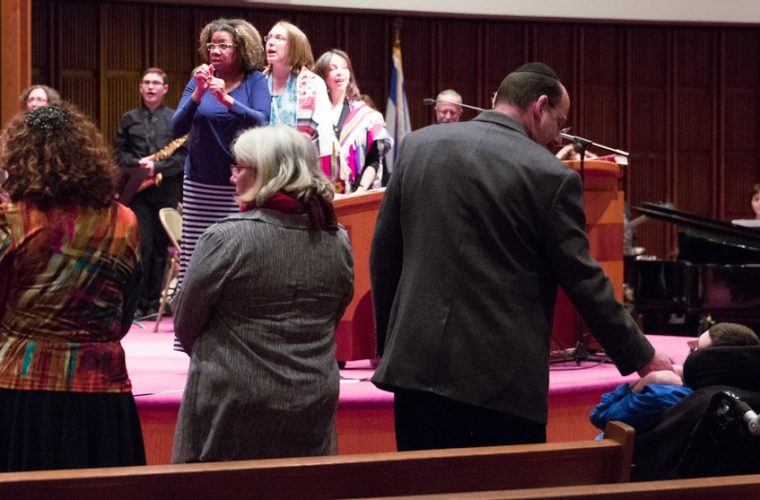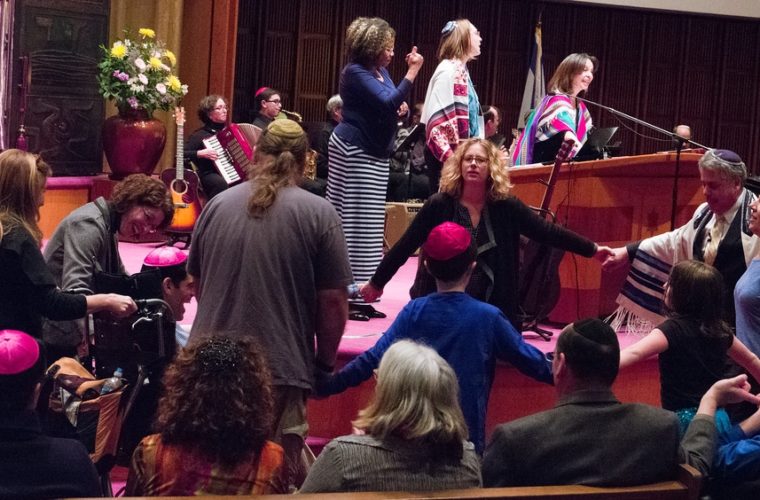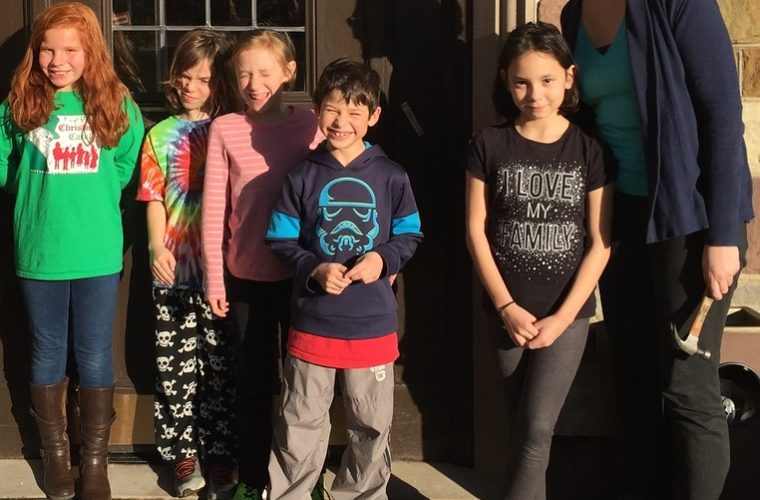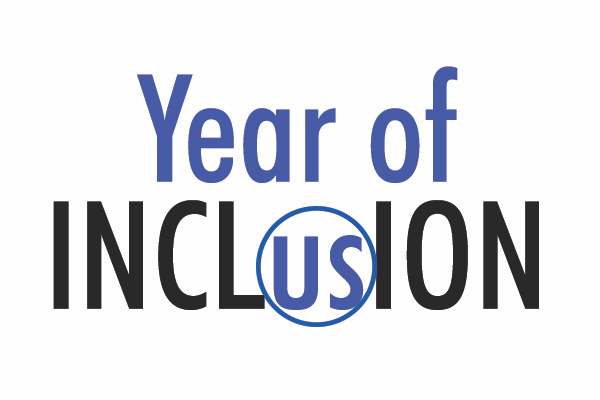Areas of Inclusion: Adults in Communal Life, Advocacy & Community Partnerships, Architectural & Physical Accommodations and Transportation, Autism, B’nai Mitzvah, Blindness, Deafness, General Inclusion, Mental Health, Parents of Children with Disabilities, Religious School, and Worship
About the Congregation
5505 Forbes Avenue
Pittsburgh, PA 15206
Number of Congregants: 772
Contact Information
Mara Kaplan
Inclusion Programming
Does this congregation have an inclusion committee?
Yes
Developing Our Program
Lisa Lederer who at the time was the co-chair of our Tikken Olam Center attended a workshop with Gamiel. She came back feeling that when you are working on social justice issues you better make sure your house is in order before you go out to repair the outside world.
She approached Mara Kaplan, the chair of Bracha Center and a parent of a child with disabilities and asked her if a joint task force between the tikkun olam center and the bracha center could be put together to address the issue of inclusion.
Mara and Lisa then put together a task force that was made up of people with disabilities, parents of children with disabilities and interested congregants. The first thing the group did was a building assessment. The second thing they did was plan a month-long learning event for the congregation for Jewish Disabilities Awareness and Inclusion month. The month culminated with a Shelly Christenson coming as a scholar-in-residence. Shelly helped the task force create its first strategic plan.
The following has been accomplished by the committee:
Building:
• The entire interior of the building, with the exception of the library is accessible. An ADA consultant has determined that room cannot be made accessible. The room now has limited use.
• The Bimah is accessible
• There are family restrooms
• A variety of choice of chairs is available for people to choose from during adult education classes.
• Accessible spaces are used for educational programs and Board of Trustee Meetings
• Board uses microphone at meetings
• Secured architectural plans and funding to make the Rose Garden accessible
• Sukkah located in the front yard, until the Rose Garden can be made accessible
• The teen school installed a new mezuzah on the front door at a height that makes it easy for children and people using a wheelchair to reach it.
Services:
• Fidget Toys available for services
• Quiet Room available for participating in Streamed Services. Toys and books are also available in that room
• For people who are unable to get to services, they can participate through our live streaming
• Magnifying Glasses available for services
• Mostly Musical marketed as “Sensory Friendly”
• Large Print prayerbooks available for both High Holidays and Shabbat
• Visual T’fillah twice a month (there are photos of people with disabilities included)
• The order of the service is done on stickers so that people can follow along (in progress)
• There is a loop system for people who use hearing aids located in the auditorium and sanctuary.
• During High Holiday Days, we reserve seats for companions on the aisles
• Rabbis announce when asking people to stand, “Please stand if you are able”
• Onegs include gluten-free options and sugar-free options
• At onegs, food with nuts are clearly marked
Training/Planning/Governance:
• Developed and implement strategic plan
• Staff and Clergy receive annual training
• Board receive annual training
• Completed inclusion assessment
• Greeters trained to welcome people with disabilities
• Ensured that people with disabilities serve on the Board of Trustees
• By-Laws and policies reviewed to ensure they meet our vision of inclusion
• New voluntary dues program implemented. We are encouraging people with disabilities who are on a fixed income to come join us at whatever amount they can afford, even if it $10 a year
• Women of Temple Sinai yearly have someone come and talk during JDAIM
Marketing:
• Weekly newsletter revamped for easier reading
• Website revamped for easier reading
• Accommodation statement developed
• Membership Director is responsible for accommodation requests
• There are large signs around Temple highlighting different members; one of these is a family who has a child with disabilities.
• February monthly newsletter strongly emphasis Jewish Disability Awareness Month
• Mostly Musical Shabbat-A Sensory Friendly Experience is marketed through social media to the Pittsburgh disability community.
Religious School:
• New Hebrew curriculum that is sensory based
• New religious school curriculum based on student choice making it easier for parents with children with disabilities to select a class that will work for their child.
• Cantor works with children “where they are” for bar mitzvah training. What a child needs to accomplish is individualized.
Mental Health:
• Formed Mental Health committee
• Held two educational sessions on Mental Health
Community Partnership:
• Jewish Residential Services: They regularly bring people to Mostly Musical. Members of the Task Force join them for dinner occasionally. We are participating in the NAMI walk with JRS.
• Allegheny Valley School: They regularly bring people to Mostly Musical.
Jewish Disability Awareness and Inclusion Month:
• Every group that meets monthly (or more often) such as the book club, Torah Study, etc. are asked to cover disability issues during Feb.
• One Shabbat during the month is Disability Awareness Shabbat where a speaker is brought in for either just Friday night or the entire weekend as a scholar-in-residence.
• The religious school plans a special program in February
• A book list is shared for both adults and children
• A special bulletin board is put up during the month
• The Task Force meets to reassess progress and determine next steps
• Youth who volunteer with people with disabilities are honored
• Members of the Task Force are honored by inclusion in services during the month
Number of people involved in the effort: 500
Involving People with Disabilities
We have people with mobility issues, visual impairment, mental health issues sitting on the task force. We also reach out to other people with disabilities who aren’t interested in sitting on the committee to ask for advice.
Funding This Effort
We used a fund at the Temple for special programming to bring in the Scholar-in-Residence. We obtained grant funding to make our garden accessible and to instill visual t’ffilah.
The majority of what we did cost no money or was part of the operating budget.
Helpful Agencies & Organizations
Shelly Christenson helped us with our first strategic plan.
Spreading Awareness About Our Work
We have information on our website. We send out information about our Mostly Musical Shabbat-A Sensory Friendly Experience through social media to disability groups in the Pittsburgh Area.
Process & Sharing
Marketing Documents Indicating Our Commitment to Inclusion
- inclusion part of website
- back of hh brochure
- greeter training manual 2017final
- mostly musical march 2017 1
- templesinaifeb17forweb
- inclusion strategic plan
Evidence of Successful Inclusion Efforts
We have had people join the synagogue because of Mostly Musical Shabbat-a sensory friendly experience. We have gotten thank you notes from people that were able to use our quiet room during services. We have gotten thank you notes from people who are unable to attend services because of a disability and stay engaged through streaming our services.
More people with disabilities are attending services. We received a lot of positive feedback last year during High Holy Days because we had magnifying glasses available.
Evidence of Changing Attitudes
The culture at Temple Sinai has changed. You can feel the difference during Mostly Musical Shabbat—A Sensory Friendly Experience. People have come up to members of the Task Force and thanked them for bringing this social justice issue to the foreground.
How We're Using and Sharing the Disabilities Inclusion Learning Center
We already use the Learning Site to gather information and utilize them when appropriate for staff and board training.
Future Inclusion Efforts
We always are working to sustain everything we have started. We are looking for ways to add more sign language to our services and ideas for helping people to get to services (transportation).

